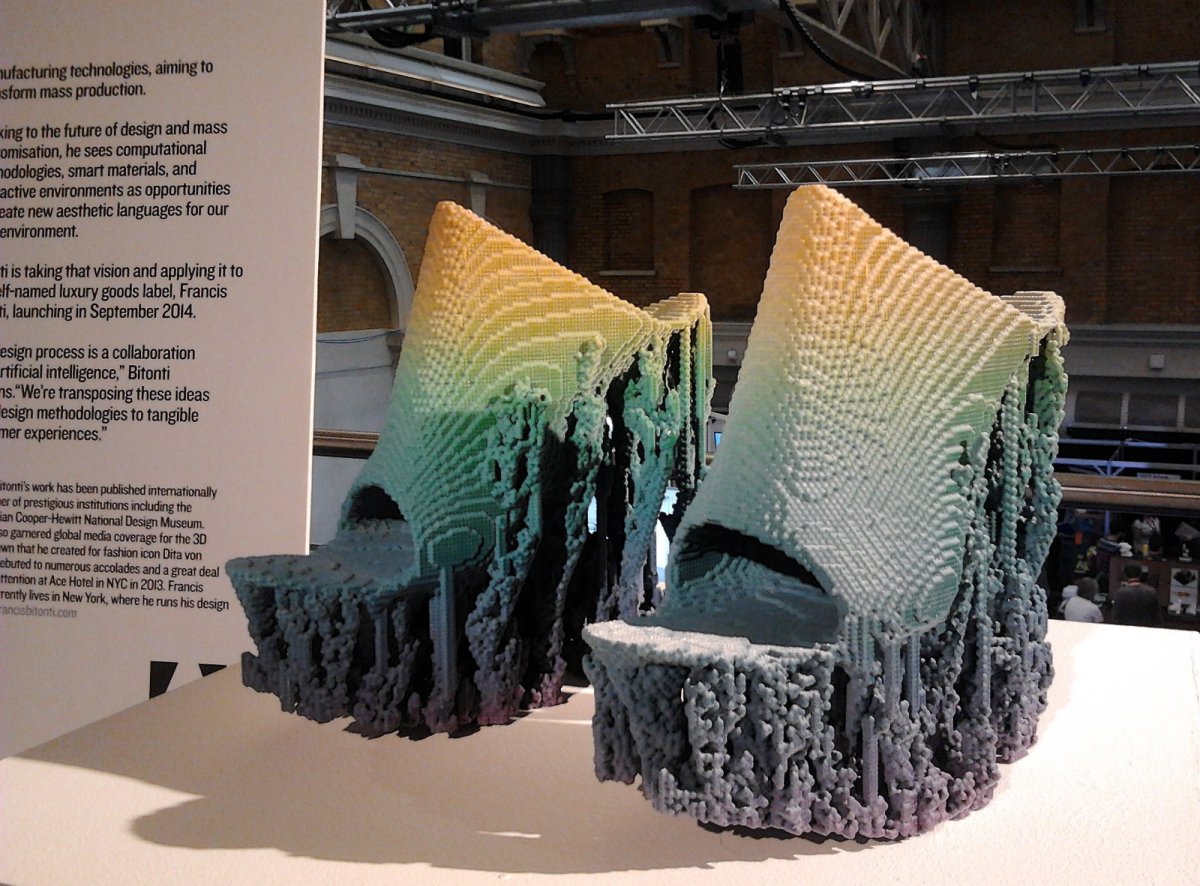
Tentative Steps Toward Melding Fashion and Technology
The arts and technology are beginning a courtship that may fundamentally affect the way we perceive both of them: in visual art, we have Google Deep Dream, creating hallucinatory vistas on par with the wackier end of Hieronymus Bosch or Alan Aldridge; in music, we have A.I composers; virtual reality offers an unprecedented and fully-immersive opportunity for filmmakers and writers alike. Fashion, however, is another kettle of fish because it is an art that is lived, occurring at all hours of the day. Additionally, the high fashion industry is a made-to-order one, often based on a limited quantity of materials and intensive crafting — a difficult set of values to integrate with the nature of the technology industry: machines mass-producing goods and materials.

There have been hesitant exchanges at the higher end of fashion — some examples include a Google and Levi’s collaboration called Project Jacquard that turns fabrics into gesture-controlled surfaces and Largerfield using 3D printing in some of his designs. At the far end of the spectrum is Studio Bitoni; Francis Bitoni, the company’s CEO, said: “Our products should create the next version of the human, not service humanity after it has evolved.” They are responsible for high heels fit to be worn to a dinner party by a Matrix sentinel and bodices that would look natural on an alien queen (although they’re currently worn by Dita Von Teese).
Fashioned Technology
Wearable technology has progressed far beyond the L.E.D t-shirts you used to wear to parties when you were 15, and has now become fully integrated into those with active lifestyles with the advent of step counters and heart rate recorders. According to an educated guess by Canalys, a research firm, the Apple Watch sold 11.9 million units last year, permeating the market more than any previous smart watch and setting a precedent for widespread adoption of wearable technology. However, the next development will shift the onus of the development from wearable to worn, stressing integration rather than accessorization. Almost every wearable currently available relies on a cell phone, including that Apple Watch.
Kate Sicchio, an assistant professor of integrated digital media at New York University, predicts the relationship could lead to the elimination of the smartphone itself: “If we look at the history of ubiquitous computing…in the ’90s, all these MIT researchers had backpacks full of laptops, and now we just have this little [rectangle] we keep in our pocket, and soon that’s going to disappear and it just will be a small microcontroller in our garments.”
While this may seem outlandish, we must think that we already consider technology as part of our bodies in many ways: a study published in the Journal of Computer-Mediated Communication states that “cellphone users are capable of perceiving their iPhone as an object of their extended self, which can be negatively impacted (i.e., lessening of self) during separation.” If this is the case, then, it is only natural that we will want to bring our technologies closer and closer to our bodies. Fashion could be the stepping stone that bridges handheld technology and bionics on the way to synthesis between humans and machines.
So what are some of the technologies that companies are dabbling in? Adidas is working on 3D printed shoes, Nike is focusing on shoes that lace themselves (which actually began as a replica of the Mag shoe worn by Marty McFly in Back to the Future Part II), and Google/Levi’s Project Jacquard created a denim jacket that can connect to a smartphone. By touching the jacket sleeve in certain ways, you can control your phone. If, as Diane Kruger famously stated, “what you wear is an expression of who you are,” our growing obsession with iPhones, Instagram, and technology as a whole will be reflected in the direction the clothing and wearable industries take in the coming decades.